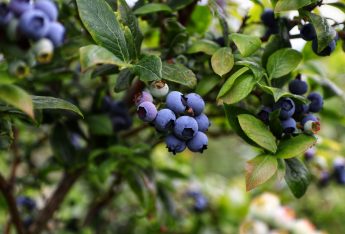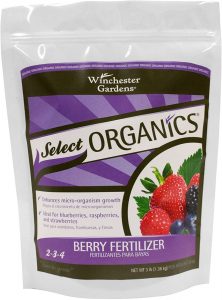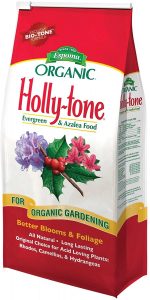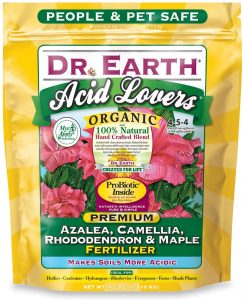Many fruits are nutritional and flavorful. they are beneficial for human health. Blueberries are some of them. Blueberries are full of vitamins and give full protection to the body. Research has shown that blueberries lessen aging ailments.
Eating blueberries can help curtain HBP. Of course, blueberries are beneficial in many ways to human health which ranges them as essential fruits that humans should eat. A perfect location, as well as good conditions, will guarantee a blueberry plant to live and yield for up to 4 or 5 decades. That’s quite a long year but of course, meeting the needs of the plant is indeed vital. Out of the many things that blueberries expect such as maximum sun, dehydrated soil e.t.c
Blueberries need fertilizer to thrive. And using a fertilizer that will acidify the soil isn’t out of place. Blueberries love acid so you do well by choosing a fertilizer that will fulfill that want. A fertilizer that contains nitrogen is a good choice. Such fertilizers that foster a good growth
Blueberries are so susceptible and respond speedily to fertilizers. Therefore, selecting the right type and choosing the right amount of fertilizer is crucial. Too much fertilizer or an insufficient quantity of fertilizer could haul the growth of blueberries, reduce the yield and could even destroy the plants or kill them.
Since fertilizers impact well on the growth, production as well as the condition of blueberries, it is imperative that you select the right and sufficient fertilizer that will benefit the plants.
The 8 Best Fertilizers For Blueberries Are Reviewed Below
Fertilizer is an important part of every plant’s life. Fertilizers help improve land with poor quality as well as helping plants yield good production. Just like every other plant needs fertilizer, so also blueberries require fertilizers. Choosing the wrong type of fertilizer is a mistake that shouldn’t be done. It could kill the plants.
If you find it hard to select a fertilizer for your blueberries, then be at ease and carefully take note of this session. Some of the best Fertilizers for blueberries will be listed and discussed at length in this session. With that, you’ll be able to choose the fertilizer of your choice that will help you keep your blueberries in good condition and prepare them for better yields.
1
Winchester Gardens Select Organics Berry Granular Fertilizer
This is one of the best Fertilizers for blueberries. It helps blueberries derived needed strength which in turns produce quality fruits. Winchester fertilizer contains about 1% sulfur and about half a percentage (0.50%) of magnesium which blueberries require for fine growth and development.
With Winchester Gardens fertilizer, you can be sure of healthy growth. It plays a good impact on the condition and production of the plants. You can expect healthy, tasty, as well as a large number of yields when you use this fertilizer. It’s made of natural ingredients which makes it a good choice for blueberries.
Key Features:
- Soil Nutrition
- Versatile
- Microorganism growth enhancement
- Strengthens the root
- Contains essential Nutrients
- Natural ingredients
Specification:
- Brand: Winchester Gardens
- Model: WG180
Pros
- Works for outdoor plants as well as indoor plants.
- Healthy for in-ground and potted blueberries.
- Assist blueberries growth
- It’s not made from chemicals
Cons
- None
2
Espoma HT18 Holly Tone
This is another fertilizer suitable for blueberries. Espoma holly tone fertilizer is the perfect choice for plants that love acid. It is basically for plants that require acid. Blueberries are some of the plants that require acid in other to have good growth, maintain a good condition, and produce good yields.
The fertilizer contains nitrogen and potash of 4% each, calcium and phosphate of 3% each, magnesium of 5%, and of course, magnesium of 1%. It is made from organic components. The fertilizer can be a source of nutrients for the soil.
It maintains the condition of the plants by keeping them healthy and providing a resistant ability. With the presence of 2.50% water-insoluble, it can release nitrogen slowly for non-stop feeding.
Key Features:
- Versatile
- Soil Nutrition
- 1.20% water insoluble
- 2.50% water-insoluble nitrogen slow-release
- Organic components
Specification:
- Brand: Dramm
- Model: HT18
Pros
- Suitable for different plants
- Perfect for plants that love acid
- It provides nutrients for the soil
- Keeps plant healthy
- Gives plants a resistant ability
Cons
- None
3
Dr. Earth 703P Organic 4 Azalea/Camellia/Rhododendron Acid Fertilizer
Just as the right application of fertilizer is important so also is choosing the right type of fertilizer. A fertilizer that’ll foster the growth and development of plants and also keep plants in perfect condition as it provides them with the needed nutrients is imperative.
The Dr. Earth fertilizer is that type of fertilizer. It is made for plants that love and require acid. This fertilizer contains TruBiotic which ensures that all organic nutrients are broken down, released to the soil, and in turn released to the roots when the roots need it.
The roots get to absorb the nutrients that are in the soil. This helps plants maintain a good condition and also increases tolerance to drought. It provides soil with acid which makes it suitable for blueberries. With Dr. Earth fertilizer, you need not use chemical fertilizer since it will give plants all the required and needed nutrients.
Key Features:
- Organic ingredients
- Versatile
- TruBiotic
- Acidic
Specification:
- Brand: Dr Earth
- Model: 703P
Pros
- Suitable for different types of plants
- Gets rid of the need for chemical fertilizer
- Provides nutrients for the soil
- Perfect for plants that love acid
- Aid plants growth and development
Cons
- None
4
Miracle-Gro Water Soluble Azalea, Camellia, Rhododendron Plant Food
Feed your blueberry plants with Miracle-Gro plant food and see flourishing plants. Either blueberries or not, all plants require many nutrients to be healthy and yield good results. This is a fertilizer suitable for plants that love acid which makes it the type that blueberries need to yield good results.
Following the instructions will guarantee safe and effective use. It contains iron as well as other nutrients that blueberries require. With Miracle-Gro plant food, you get to harvest tasty blueberries.
Key Features:
- Effective
- Versatile
- Root nutrients
Specification:
- Brand: Miracle-Gro
- Model: 1000701
Pros
- Suitable for plants that love acid
- Aid plants growth
- Provides iron and other vital nutrients
Cons
- None
5
Jobe’s Azalea, Camellia & Rhododendron Fertilizer Spikes
Here is another effective fertilizer that fosters the growth and condition of blueberries. This fertilizer is indeed one of a kind. It is very easy to use. This already measured fertilizer requires no effort in usage. By simply dipping in spikes of the fertilizer, it gradually releases nutrients that’ll last for up to 56 days. It is efficient and delivers without wasting time. It causes no mess neither does it cause any harm and it doesn’t smell. It contains 7%, 9%, and 8% of potash, nitrogen, and phosphate respectively.
It is a synthetic fertilizer but the nitrogen it contains, totally comes from ammoniacal compounds. Ammoniacal nitrogen serves as food, so to speak for plants. It does that, by slowly feeding plants and keeping the acid in the soil for quite a long period.
Spike fertilizers do not wash away just like surface applied fertilizers so this fertilizer too won’t wash away easily. It’ll rather give needed nutrients to plants gradually.
Key Features:
- Gradual feeding
- Comes in spikes
- Maintain soil acid
- Ammoniacal nitrogen
- Synthetic
Specification:
- Brand: Jobe’s
- Model: 04101
Pros
- Suitable for plants that love acid
- Causes no mess
- Doesn’t smell
- Easy to use
Cons
- None
6
Osmocote Smart-Release Plant Food Plus Outdoor & Indoor
Feeding plants with the right fertilizer is so valuable. After planting, you sure are expecting the plants to grow, maintain a good condition, and eventually, thrive producing good fruits. Therefore, you need to look out for just what the plants need. Oscomote fertilizer is one of the best Fertilizers.
It encompasses the needed nutrients that plants need to grow and flourish. It can be used for almost all types of plants. It helps to maintain the PH of the soil. It embodies boron which in turn has an impact on the size of blueberries. It gives plants the needed nutrients without causing either the roots or leaves to burn.
Key Features:
- Soil PH modifier
- Essential nutrients
- Versatile
Specification:
- Brand: Scott’s Miracle-Gro
- Model: 274850
Pros
- Doesn’t burn
- It has a great impact on the size of blueberries
- It feeds blueberries exactly what they need to grow
- Suitable for different types of plants.
Cons
- None
7
Jobe’s Organics 9364 Fertilizer
Jobe’s Organics 9364 fertilizer contains no manufactured chemicals making it one of the best Fertilizers you need to feed your blueberries for better growth and yield. It lessens the alkalinity in the soil and then gives natural sulphur to plants that love acid. Healthy soil is a very important factor in the plants’ life.
Therefore, you must keep your soil healthy to benefit the plants. With Jobe’s organics, you can keep the soil healthy. Low PH does no good but thanks to Jobe’s organics the soil PH will boost. It is an excellent fertilizer for different types of plants. By simply heeding instructions, you prepare yourself to harvest the best blueberries.
Key Features:
- No manufactured chemical
- Universal
- Boosts soil PH
- Raw sulphur
Specification:
- Brand: Jobe’s
- Model: 9364
Pros
- Doesn’t burn
- Ideal fertilizer for blueberries and other plants
- Keeps the soil in a healthy circumstance
- Contains the necessary nutrients
- Reduces the alkalinity in the soil
Cons
- None
8
EarthPods Premium Fruit & Citrus Plant Food
Earthpods fertilizer is easy to apply and use. You do not need to start measuring instead dip it into the soil. The fertilizer pods slowly break down and discharge nutrients bit by bit. It is made from raw ingredients without any chemical. It works for several types of plants. It also delivers nutrients to the soil. With Earthpod fertilizer, your blueberries will thrive.
Key Features:
- Natural ingredients
- Universal
- Quick and effortless application
- Organic nutrient
- Soil nutrients
Specification:
- Brand: Earthworm Technologies
- Model: B07ZJMVGSK
Pros
- Easy to use
- Contains essential nutrients
- Suitable for different types of plants
- Suitable for indoor and outdoor plants
Cons
- None
Frequently Asked Questions (FAQs)
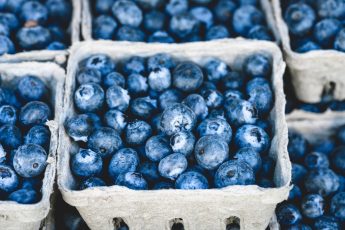
Choosing the right fertilizer requires making a little research at least. You don’t want to get a fertilizer that’ll damage your blueberries driving your hard work into the pit. Often you might get confused or get curious about which to buy, how to apply, or any other questions that’ll help you grow your plants in good condition.
This session will provide answers to questions that are commonly asked regarding blueberries and Fertilizers. Carefully dig through.
How do you fertilize blueberry bushes?
Choosing the right fertilizer is imperative and indeed vital but of course, the application is also very vital. The wrong application of fertilizer can damage the plants. Therefore, the proper use of fertilizer should not be underestimated. Out of the different types of blueberries, you might be curious about how to fertilize blueberry bushes. Without much effort, sit back and carefully read through this part.
During the blooming period, about an ounce of the 10-10-10 fertilizer should be applied to each bush during spring. Then, gradually increase the amount of fertilizer by an ounce every year until it’s up to the eighth year. This will help the bushes develop and mature. When applying the fertilizer, it should be between the soil and the mulch. From the base of the bush, simply detach the mulch then sprinkle the fertilizer.
When sprinkling the fertilizer, it should be done in an even layer such that from the base of the plants it is done in a circle. Note, the fertilizer does not get to any part of the blueberry bushes, not the crown not the stem. Afterward, water the plants. Different Fertilizers can come with different instructions. So follow instructions to know the right measurement when you use a different type of fertilizer.
What do you feed blueberry plants?
Out there are numerous fertilizers for plants. Is it quite confusing to choose the perfect one for blueberry plants? Fertilizers for rhododendrons as well as azaleas are the type to feed blueberry plants. They are a good choice. Fertilizers that contain an ammonium form of nitrogen are often what you need to feed blueberry plants.
With the right fertilizer, you keep your blueberries in good condition and as well foster growth and production. Fertilizers made for plants that love acid are also a good choice. They give blueberries what they need to keep growing. You can also feed blueberries with homemade fertilizers.
Such as crushed fishbone, coffee grounds, and dried banana peels. After mixing a cup each, you can feed your blueberry this mixture.
Are used coffee grounds good for blueberry bushes?
Among the different nutrients that blueberries get from fertilizers, the most important one that they need in copious amounts is nitrogen. One of the ways to provide blueberries with nitrogen is by applying used coffee grounds. Stop disposing of your grounds after use. After brewing, people usually dispose of the grounds in a bid to get rid of waste in the kitchen. Usually, farmers use coffee grounds on blueberries as fertilizers.
When coffee grounds are added to the soil it provides nitrogen to blueberries as well as other plants. When plants are short of nitrogen, the most natural way to boost the nitrogen content is through coffee grounds. However, it is important to strike a balance. Be careful with the number of coffee grounds you use. Too many coffee grounds can negatively affect the growth of blueberries. It could hinder growth.
Blueberries are plants that require acid and coffee grounds also increase the level of acid in the soil. So if you need to make a neutral soil acidic, simply add a little coffee grounds. But, just as too much nitrogen can cause stunted growth so also can too much acid cause it. So be careful about the amount you use. To avoid too much acid or nitrogen, it is recommended that you check the nutrient level as well as the PH.
How do you make soil acidic for blueberries?
Among the many plants that require acidic soil to grow in good condition and flourish are blueberries. Blueberries are plants that love and require acid. So what if you need your soil to be acidic, what should you do? The presence of too much acid in the soil can be the deterioration of plants. So, don’t forget to access and test the soil before acidifying. Only when it lacks acid should you remember to do the following:
1. COFFEE GROUNDS
Using Coffee grounds is one of the many ways to make the soil acidic. Once the soil lacks acid use coffee grounds. Spreading used coffee grounds on the soil will do the trick. Of course, you do not want the grounds to gather in just one spot. Spreading it out will make the breaking down process fast and easy and this will benefit the plants in general.
2. SPHAGNUM PEAR
Sphagnum peat is also known as a great source of acid for plants. To make the soil acidic you only need to do an effortless job. Around the base of the blueberry plants is where you need to apply the sphagnum. And this should be done yearly. Just once in a year is what is needed.
3. ELEMENTAL SULPHUR
Using a soil acidifier (commercial) that contains sulfur or using pure elemental sulfur can make the soil acidic. For the sulfur to have enough time to work its way into the soil, you should apply these a year before when you’ll plant the blueberries. Rainy spring and autumn is the best time to apply the treatment. The soil PH and the soil type is a determinants of the amount of treatment you’ll need.
4. VINEGAR
Vinegar contains nutrients and vitamins that the soil needs. Although not all types of vinegar have these features. Get a white vinegar that’ll conform with the level of liquid that you’ll need to feed the soil. One of the many ways to use vinegar as an acidic treatment for soil is by diluting it. About a gallon of water is enough.
Take about a cup of vinegar with water then empty it inside a watering can. Afterward, water the plants as usual. If you use the irrigation method, just apply the vinegar there.
5. FERTILIZERS
Fertilizers also make the soil acidic. Fertilizers designed to assist the growth of plants and as well provide the needed nutrients often do one important thing; make the soil acidic. By choosing the right type, you’ll see good results.
6. COMPOST TEA
Compost tea also helps in acidifying the soil. It also gives the plants nutrients that yields result in a short time. Placing about 18 to 19 liters (, precisely 5 gallons) of water in the sun for a full day is what you need to make a compost tea. Placing the water in the sun will get rid of the chlorine present in the water. Put some decayed compost into the water( 1 or 2 cups per gallon). Occasionally stir this mixture for 2 days. Then separate the soil from the liquid and the compost tea is done. Fill the watering can with the tea. It’s time to water the garden.
Is Epsom salt good for blueberry plants?
Epsom salt is gotten from hydrated magnesium sulphate Epsom salt is a good option when blueberry plants lack magnesium. For a long time, Epsom salt has usually been used for plants. The nutrients it gives to plants positively affect their growth.
When your plants need magnesium, using Epsom salt will do the trick. The presence of magnesium in plants makes it easy for plants to easily draw other needed nutrients from the soil. Epsom salt also helps when the soil is deficient. When you use Epsom salt you can expect healthy and green leaves. Do you know using Epsom salt will help impede pests?
Can you use Miracle Grow on blueberry bushes?
Using Miracle Grow on blueberry bushes will yield great results. Using it will make the roots sturdy. It provides adequate nutrients for blueberry bushes. Mixing Miracle Grow with other plants’ food will strengthen the soil which will give back to the plants.
Follow the instructions and maintain healthy blueberries. Feed your blueberry bushes with Miracle-Gro plant food for flourishing berries. Whether blueberries or not, all plants require many nutrients to be healthy and yield good results. This fertilizer is suitable for plants that love acid which makes it the type that blueberries need to yield good results. It contains iron as well as other nutrients that blueberries require. With Miracle-Gro plant food, you get to harvest tasty blueberries.
What is the Best Mulch for blueberries?
Nowadays, blueberries are grown domestically yet, we want to harvest delicious berries, for this reason, the need for mulch comes in. There are numerous options when it comes to choosing mulches however, the type of plants will determine which to go for.
The very common mulches are sawdust, bark chips, leaves, peat moss, and pea gravel. Of course, they all perform almost the same function but the effectiveness could differ depending on the shrub. Mulches with strong shells are usually sturdy and durable they don’t get washed away easily by strong air, or too much water. The following are the best Mulch for blueberries.
1. BARK MULCH
Bark is the best when it comes to choosing mulch for blueberries grown outdoor. Bark maintains the soil moisture and gives you control over the growth of weeds. With barks, you can prevent the existence of weed. This will allow the blueberry plants to get all the vital nutrients needed for them to flourish. You need not worry about weeds getting all the nutrients meant for the plants, thanks to bark mulch.
2. ACIDIC MULCH
Blueberries are the type of plants that require acid for healthy growth and great yield. Pine barks, peat moss as well as pine needles contain a high level of PH ranging from 3.5 to 4.5. This is referred to as acidic mulch. Since blueberries require acidic soil, this type of mulch can be used at a balanced rate. It shouldn’t be excessive.
3. PINE BARK MULCH
The perfect amount of PH that blueberries require is present in pine barks. Since blueberries don’t do well in heavy soil, pine bark plays a great role. It loosens the soil and at the same time maintains the moisture. Using pine bark with a quality fertilizer will result in flourishing blueberry plants.
4. SAWDUST
Sawdust is another type of mulch that works well for blueberry plants. Sawdust and peat moss does the same thing. They are both acidic. The only difference is that peat moss is expensive. So sawdust can serve as a substitute for peat moss while working with a low budget.
Are eggshells good for blueberries?
Eggshells are very important. After using what is inside an egg either to make an omelet or an egg roll up, do not get rid of the eggshells or you might be getting rid of a fortune. Eggshells can be used as fertilizer for blueberries. Blueberries love acid so using eggshells as fertilizer is effective. Eggshells are rich in calcium carbonate one of the essential ingredients to grow plants.
Check out more about gardening HERE.
Conclusion
Blueberries are tasty but also medicinal. They play a positive impact on human health. Growing blueberries is easy but, selecting the right location, using the proper soil and importantly using the right soil is indeed important.
This article has discussed some of the best Fertilizers for blueberries to choose from. Fertilizers will maintain the healthy condition of blueberries and as well help the soil stay acidic. Questions concerning growing and caring for blueberries have also been answered.
After planting blueberry plants, caring for them is also vital. Proper care for blueberry plants will let you harvest the best and most tasty blueberries you’ve ever wanted.
We hope that this article was helpful. If you have any queries feel free to reach out in the comments section below. Check out more content like this on our website.
Also, see
Best Fertilizers For Citrus Tree

